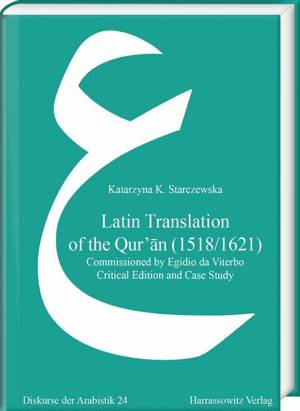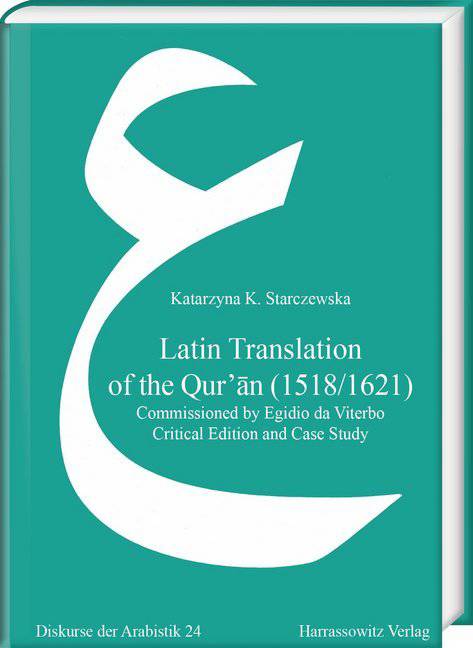
- Afhalen na 1 uur in een winkel met voorraad
- Gratis thuislevering in België vanaf € 30
- Ruim aanbod met 7 miljoen producten
- Afhalen na 1 uur in een winkel met voorraad
- Gratis thuislevering in België vanaf € 30
- Ruim aanbod met 7 miljoen producten
Zoeken
Latin Translation of the Qur'an (1518/1621)
Commissioned by Egidio Da Viterbo. Critical Edition and Case Study
Katarzyna K Starczewska
€ 307,95
+ 615 punten
Omschrijving
In the spring of 1518 an Italian cardinal, Egidio da Viterbo, travelled from Rome to Spain on a Papal mission. While the official purpose of the visit was to convince King Charles V to collaborate against the Turks, the Papal legate pursued another, more covert goal. The Cardinal sought to obtain for himself a translation of the Qur'an. The translation was prepared for the Cardinal by Juan Gabriel, a Muslim convert (Morisco) from Teruel, formerly known as Ali Alayzar. Seven years later, this text was corrected by another convert of Spanish origin, the famed Leo Africanus. This book contains both an edition and study of Egidio da Viterbo's Qur'an. The critical edition is based on the two existing manuscripts and is the first published work to include the full text of this Qur'anic translation. It includes the original translation, the corrections of the text made by Leo Africanus, an appendix with Qur'anic glosses and a case study devoted to persons involved in the translation. The study serves as an introduction to the Latin text, exploring the context in which Muslim converts to Christianity collaborated with church authorities. It enumerates and analyzes the Morisco translator's diverse philological tools, which could have been used by the clergymen for polemical purposes. At the same time, it offers further insight into European studies of Arabic during the period.
Specificaties
Betrokkenen
- Auteur(s):
- Uitgeverij:
Inhoud
- Aantal bladzijden:
- 828
- Taal:
- Engels, Latijn
- Reeks:
- Reeksnummer:
- nr. 24
Eigenschappen
- Productcode (EAN):
- 9783447108621
- Verschijningsdatum:
- 21/02/2018
- Uitvoering:
- Hardcover
- Formaat:
- Genaaid
- Afmetingen:
- 170 mm x 240 mm
- Gewicht:
- 1872 g

Alleen bij Standaard Boekhandel
+ 615 punten op je klantenkaart van Standaard Boekhandel
Beoordelingen
We publiceren alleen reviews die voldoen aan de voorwaarden voor reviews. Bekijk onze voorwaarden voor reviews.







